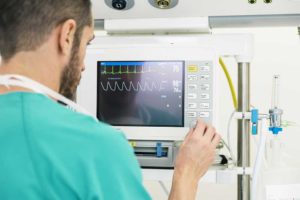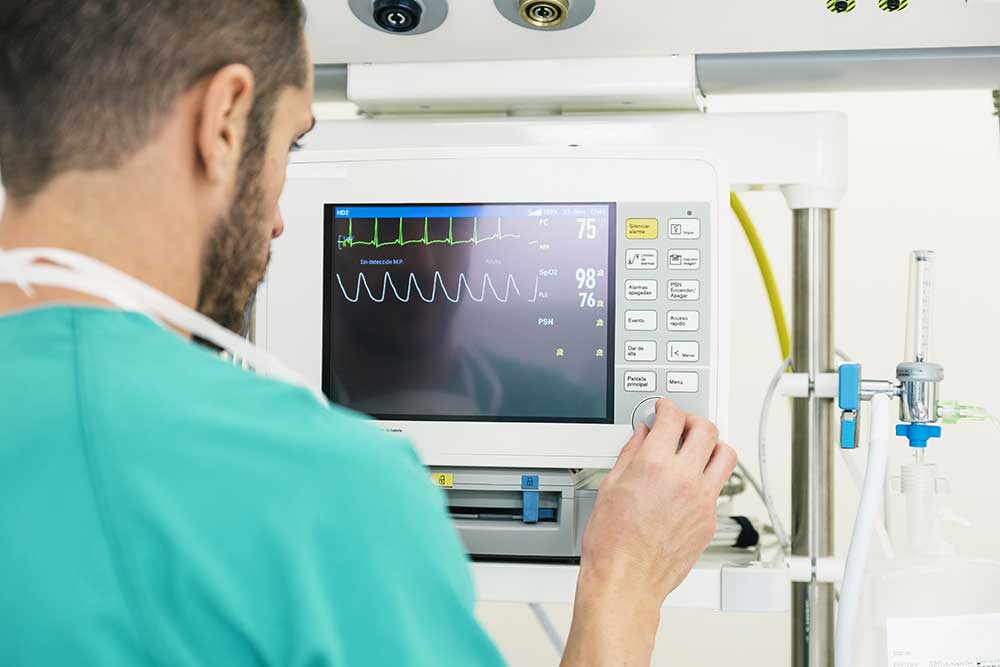Disclaimer: The information on our website is provided for general information purposes only. We make no representations or warranties of any kind, express or implied, about the completeness, accuracy, reliability, suitability or availability with respect to the website or the information contained on our website for any purpose. Any reliance on such information is therefore strictly at your own risk and we are not liable for any damages or losses arising out of or resulting from your reliance on any information contained on our website.
A cardiovascular technologist (also known as a vascular technologist) is a health professional who diagnoses cardiovascular problems. They use medical imaging methods like ultrasounds to diagnose heart conditions, vascular problems, or ailments that involves the heart, it’s arteries, valves, or blood vessels.
Watch a video to learn what a cardiovascular technologist does:
How to Become a Cardiovascular Technologist
According to the Commission on Accreditation Programs of Allied Health Programs education can range in length from 6 months to 4 years depending on your experience and the number of diagnostic evaluations you select to be trained on. After graduating, they must pass the Registered Cardiovascular Invasive Specialist test (link opens in a new tab) to gain their certification. This can be earned through the American Registry of Diagnostic Medical Sonographers (ARDMS) and Cardiovascular Credentialing International (CCI). You may also want to check with your state’s requirements, some want state licensure to practice. You can do this by contacting your state’s medical board.
Job Description of a Cardiovascular Technologist

Typically a cardiovascular technologist prepares patients, position patients for the procedure, set-up the devices, and connect patients to any necessary diagnosing and monitoring equipment. They also operate diagnosing systems and carry out any non-medical procedure that may be necessary for the diagnosis. They use ultrasound imaging devices such as an EKG, C-arm, inteleflator, and generate reports from the tests administered.
A cardiovascular technologist only plays a diagnostic role and doesn’t intervene medically. However, they may interpret the reports for a patient and assist the cardiovascular surgeon or doctor.
Cardiovascular Technologist Career Video Transcript
It takes a team to accomplish the everyday miracles of modern care for heart patients. Cardiovascular Technologists and Technicians are essential members of that team. Technologists are trained to prepare patients and assist physicians during procedures such as cardiac catheterization and open-heart surgery. They also monitor patients’ blood pressure and heart rate. The work requires a high degree of precision and concentration, but also the ability to keep patients comfortable and ease their anxiety.
The work of technicians focuses on the measurement of the electrical signals generated by the heart—called an electrocardiogram, or EKG. Technicians place sensors on the patient, and operate different machines that record the patient’s heartbeat. They also administer stress tests. Some technicians take images, known as echocardiograms, of a patient’s heart using ultrasound equipment. An associate’s degree in cardiovascular technology and certification are the most common qualifications needed for employment. The work can be stressful, but very rewarding because every hour of every day someone’s life is on the line.
Article Citations
Bureau of Labor Statistics, U.S. Department of Labor, Occupational Outlook Handbook, Diagnostic Medical Sonographers and Cardiovascular Technologists and Technicians, Including Vascular Technologists.
National Center for O*NET Development. 29-2031.00. O*NET OnLine.
The career video is Public Domain from the U. S. Department of Labor, Employment and Training Administration.

